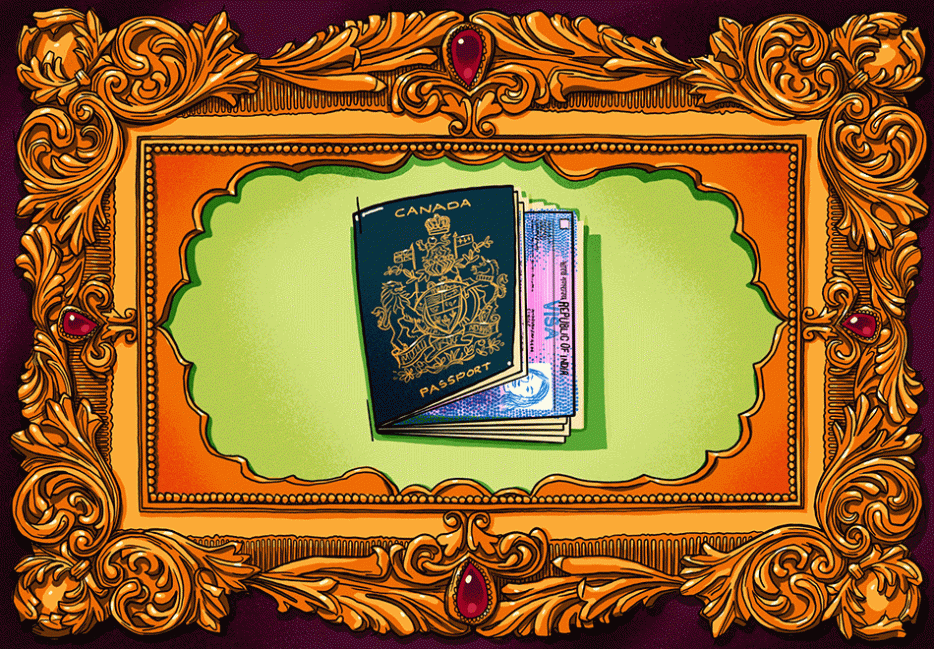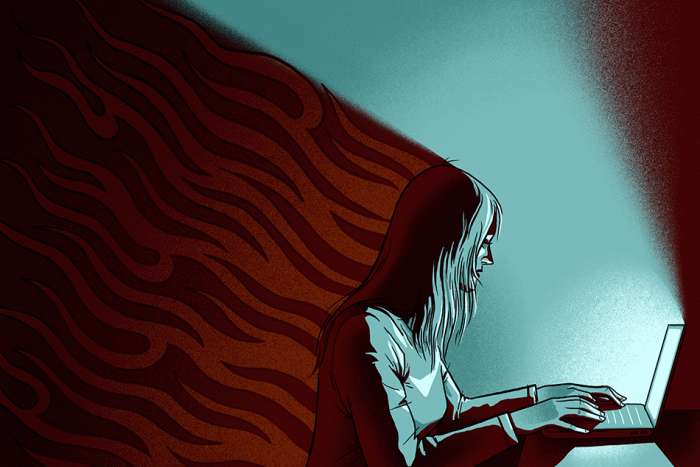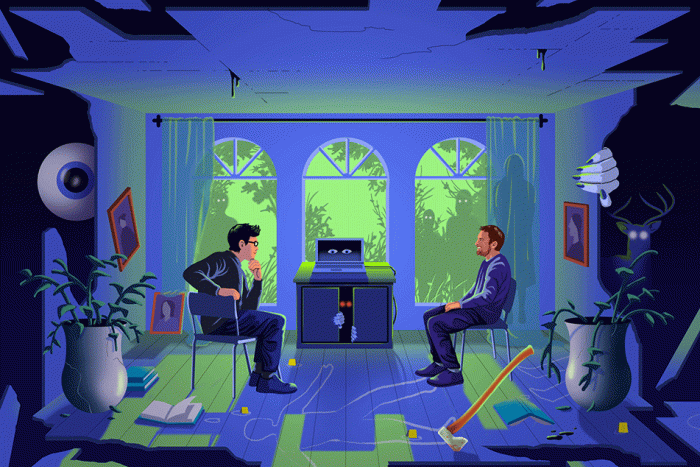What were we obsessed with, invested in, and beset by in 2022? Hazlitt’s writers reflect on the issues, big and small. Keep up with this year’s series here.
If you were to ask me what my most prized possession was this year, you could find it freshly pasted inside the pages of my Canadian passport. The elusive Indian tourist visa, which after almost two months of never-ending paperwork was finally in my hands. Like a lot of people, I was ready to start travelling again, and for my first trip “post-pandemic,” India was the only place I wanted to go.
There have only been two or three family trips back since I immigrated to Canada as an infant nearly thirty years ago, each one bookended with either the death of a loved one or a celebration. It had always been a rushed, sheltered experience, shuttled between different extended family members' homes. Even though I was visiting home, I left feeling more alien than ever. There was something about the country where I was born that had always eluded me.
*
During the pandemic, like everyone else, I was spending a lot of time alone. It wasn’t a new thing for me, since I already lived by myself, but now I had even more time to ruminate. Not only on my flaws and everything I didn’t like about myself, but also the good. What was important to me? What are the things that I had always wanted to do? And, of course: Who was I, really?
Questions about identity and belonging seem to have become cliché fodder for most first generation kids, alongside your name being pronounced wrong, being a translator for your parents, or answering the question, “But where are you really from?” I would be lying if I said this also hadn’t been my experience and I hadn’t seen it play out in my life in different ways. I’d grown up with a very elementary understanding of my Hindu faith. I didn’t know the purpose of our different rituals on holidays, or stories about our Gods. I could give you a Hallmark card answer about light overcoming darkness when it came to why we celebrate Diwali, when it deserves to be told in the richness of its details. I didn’t really have any qualms towards anyone in my family for not teaching me more, I was experiencing the natural order of growing up in between two cultures. Some things just got lost along the way.
During this time of solitude, something pulled me to start reconnecting with my faith and culture. It was a gradual process of discovery and learning. It started with a lot of reading: from the best English translation I could find of the Bhagavad Gita to different books on Yogic studies or Indian art history. I set up my own altar for prayer, giving myself the space and time to teach myself how to do it. And I found a community online with others who were on the same path as me.
When I planned to do a solo trip to India for a few months this year, I felt guilty about having the privilege. But it was important to me and I started looking at it as an intentional homecoming. For the first time, I could experience India on my own terms. Each place I decided to visit served a purpose: I wanted to learn something or have time to just be.
*
The intimidation set in on the streets of New Delhi. I couldn’t turn my head for a second without seeing another person or have a moment of reprieve from the incessant blaring of car horns. I felt naive about my decision and my nervous system, which had been following the same rhythm for the last two years, was going into overdrive. Maybe I had over-romanticized this. I felt like static in the hum of the world happening around me.
But when I reached Dharamshala, in the foothills of the lower Himalayas, I relaxed. I stood on the balcony of my hotel and looked at the landscape in front of me. The grass was dense and each tree was green and perfect in its own way. The vastness of the mountain’s peaks, concealed by the clouds. Silence. Fresh air.
I found the moment I was looking for while sitting with thousands of people listening to His Holiness the Dalai Lama give his teachings. And again, watching the sunrise after camping in the Thar Desert in Rajasthan. And again while taking a boat ride and lighting lamps into the holy Ganges in Varanasi during evening prayers. While swimming in the ocean near Kochi during my last week there, the collection of all of these moments came together . India, my birthplace. I remembered her now. I’m glad I found her.






